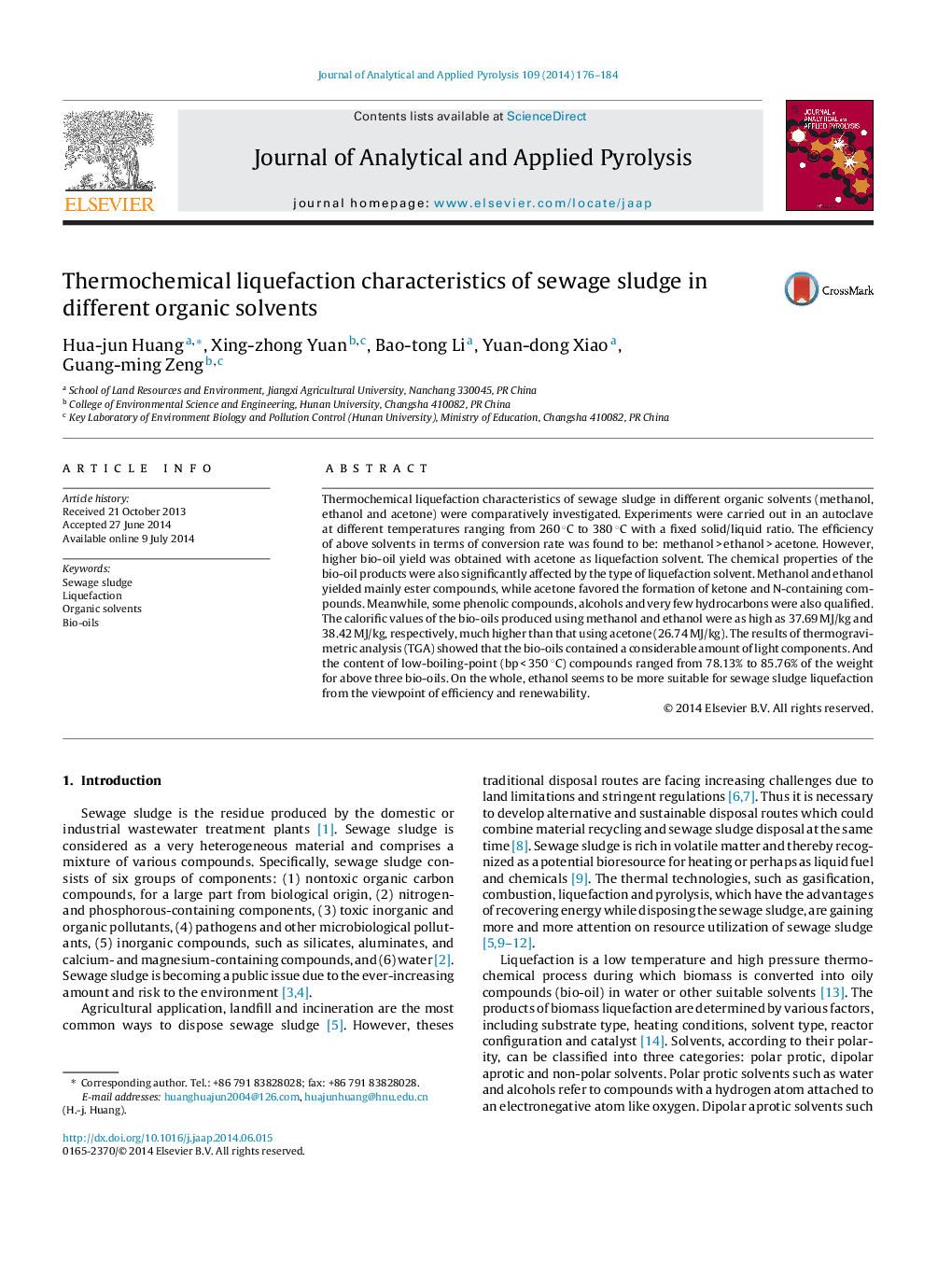| Article ID | Journal | Published Year | Pages | File Type |
|---|---|---|---|---|
| 7606909 | Journal of Analytical and Applied Pyrolysis | 2014 | 9 Pages |
Abstract
Thermochemical liquefaction characteristics of sewage sludge in different organic solvents (methanol, ethanol and acetone) were comparatively investigated. Experiments were carried out in an autoclave at different temperatures ranging from 260 °C to 380 °C with a fixed solid/liquid ratio. The efficiency of above solvents in terms of conversion rate was found to be: methanol > ethanol > acetone. However, higher bio-oil yield was obtained with acetone as liquefaction solvent. The chemical properties of the bio-oil products were also significantly affected by the type of liquefaction solvent. Methanol and ethanol yielded mainly ester compounds, while acetone favored the formation of ketone and N-containing compounds. Meanwhile, some phenolic compounds, alcohols and very few hydrocarbons were also qualified. The calorific values of the bio-oils produced using methanol and ethanol were as high as 37.69 MJ/kg and 38.42 MJ/kg, respectively, much higher than that using acetone (26.74 MJ/kg). The results of thermogravimetric analysis (TGA) showed that the bio-oils contained a considerable amount of light components. And the content of low-boiling-point (bp < 350 °C) compounds ranged from 78.13% to 85.76% of the weight for above three bio-oils. On the whole, ethanol seems to be more suitable for sewage sludge liquefaction from the viewpoint of efficiency and renewability.
Related Topics
Physical Sciences and Engineering
Chemistry
Analytical Chemistry
Authors
Hua-jun Huang, Xing-zhong Yuan, Bao-tong Li, Yuan-dong Xiao, Guang-ming Zeng,
